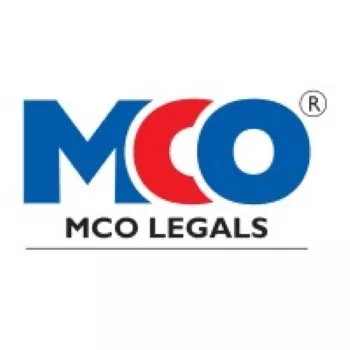- within Corporate/Commercial Law topic(s)
- in United States
- within Corporate/Commercial Law, Consumer Protection and Criminal Law topic(s)
- with readers working within the Law Firm industries
- Introduction
1.1 By virtue of Section 14(1)(d) of the Insolvency and Bankruptcy Code, 2016 (IBC), the Applicant is prohibited in law from taking any action against the Corporate Debtor for the recovery of property. This legal principle was recently confirmed by the NCLT in the matter of Sudha Apparels Limited v. Mr. Ravi Sethia, (2024) ibclaw.in 884 NCLT decided on 1.10.2024. In this case study, inter alia, the legal principle emanating from section 14(1) of IBC is discussed briefly.
- Brief facts
2.1 As claimed by the Applicant, the Applicant is the owner of the leased premises. The Corporate Debtor is the lessee. The Applicant and the Corporate Debtor were not the original owner and the lessee of the leased premises but became so after conveyance and assignment of such rights by the original owner and the lessee respectively over a period of time during the subsistence of the lease agreement dated 17.09.2008.
2.2 The Applicant has claimed that since February 2022, they have not received any payment of lease rent from the Corporate Debtor.
2.3 Thus, the Applicant issued a defect rectification notice upon the Corporate Debtor (received on 14.03.2023) under the Lease Agreement, whereby the Corporate Debtor was, inter-alia, called upon to make payment of its outstanding lease rent along with interest within 30 days from the date of receipt thereof.
2.4 Since the Corporate Debtor failed to comply with the requisitions of the defect rectification notice, the Applicant vide Letter dated 14.04.2023, terminated the Lease Agreement and called upon the Corporate Debtor to handover the peaceful and vacant possession of the leased premises to the Applicant forthwith.
2.5 However, as the Corporate Debtor neither paid the rent nor handed over the possession despite the above-mentioned notice(s), an application u/s 9 of the Arbitration and Conciliation Act, 1996 was filed by the Applicant against the Corporate Debtor before the Hon'ble Commercial Court.
2.6 Vide Order dated 29.04.2023, the learned Judge restrained the Corporate Debtor and/or its men, agents, assigns and/or servants from dealing with, disposing of, transferring, alienating, encumbering and/or creating any third-party rights in respect of the leased premises or any part thereof.
2.7 By virtue of Order dated 04.05.2023 in the above mentioned Company Petition, the Corporate Debtor was admitted into the CIRP u/s 7 of the IBC and the Respondent was appointed as the Interim Resolution Professional ('IRP') of the Corporate Debtor.
2.8 Pursuant to the appointment of IRP (Respondent) and public announcement, the Applicant filed its claim on 04.07.2023 in Form B before the IRP which was duly received by the IRP on 05.07.2023.
2.9 On account of operation of moratorium u/s 14 of the IBC, the proceedings before the Commercial Court against the Corporate Debtor were adjourned sine die.
2.10 The IRP through its letters replied to the termination notice terming it as illegal and in contravention of the provisions of the IBC and the Applicant was bound to continue the lease at a specified rent.
2.11 In view of the aforesaid circumstances, the Applicant file an application u/s 60(5) of the IBC.
- Observation
3.1 The Applicant has not produced on record a copy of the registered Deed of Conveyance dated 11.10.2010 or any other deed or document to prove that the larger premises, including the Leased Premises, was conveyed to it by the Original Owner at any point of time or it has title and ownership over the said premises/property.
3.2 There is no document on record to show the transfer of business by the Original Lessee nor any document is there on record to show that there was an assignment subsequently in favour of the Corporate Debtor.
3.3 The applicant has not placed on record any invoices raised by it to the Corporate Debtor for in respect of the lease money/ rentals nor any bank statements, TDS Certificates, etc. evidencing payment of lease rentals, etc. by the Corporate Debtor to the Applicant.
3.4 Further, the Lease Deed dated 17.09.2008, which is for a period of 21 years, is not a registered document which is the requirement as per Section 17 of the Registration Act, 1908. Section 49 of the Registration Act, 1908 disallows such document to be accepted as evidence, unless it has been registered. Even otherwise, the Applicant has failed to produce any document evidence to establish that the termination letters were served upon the Corporate Debtor before the initiation of CIRP.
3.5 Further, an Intervenor (i.e. Praxis Home Retail Ltd) filed an Intervenor Application producing therewith a copy of leave and license agreement executed for a portion of the leased premises by the Corporate Debtor in its favour. In the Leave and License Agreement dated 01.04.2021, the Corporate Debtor in Clause 5.3. (i) has claimed itself to be the owner of the premises in question. However, it was noted that the Leave and License Agreement is neither stamped nor registered even though as per Clause 2.4 of the said agreement, the term of leave and license is stated to be perpetual in nature. Further, the NCLT noted that how a lessee having limited rights to sub-lease and that too without the consent of the lessor, could grant or create a perpetual license in favour of the Intervenor.
- On Moratorium u/s. 14(1)(d) of IBC
4.1 Section 14(1)(d) of the IBC prohibits recovery of any property by an owner or lessor where such property is occupied by or in the possession of the corporate debtor, more so when it is being used for sustaining the corporate debtor as going concern.
4.2 The NCLAT in Company Appeal (AT) (Insolvency) No. 323 of 2018 in M/s Navbharat Castings LLP vs. M/s Moserbear India Ltd. & Anr", was dealing with the issue as to whether the order of moratorium will apply to the leasehold property of a landlord in which the corporate debtor is a tenant, particularly after the decree of eviction had been passed in favour of the landlord against the corporate debtor. It was held that in view of Section 14(d)(i) of the IBC, the recovery of the property by the owner occupied by the Corporate Debtor is not permissible during the period of moratorium. Similar view was given by the NCLAT in the matter of Chandrakant Khemk v. Santanu Bhattacharjee (RP) and Ors. (2024) ibclaw.in 733 NCLAT, on 12.11.
4.3 Therefore, the recovery of property by the owner/ landlord occupied by the Corporate Debtor is not permissible during the period of moratorium.
4.4 The legislative intent of the moratorium is obviously to keep corporate debtors' assets together during the resolution process and to ensure that the corporate debtor continues as a going concern. Any unilateral termination of a lease deed during the moratorium period militates against the goal of keeping the corporate debtor as a going concern.
- Decision
5.1 On the basis of the above observations, the NCLT held that the applicant has failed to concretely establish its the ownership qua the leased premises and also the arrangement of lease between the Applicant and the Corporate Debtor. Therefore, the possession of the premises in question cannot be ordered to be handed over.
5.2 Moreover, the possession of premises which is being used to keep the Corporate Debtor as a going concern cannot be disturbed in light of the moratorium u/s 14(1)(d) of the IBC.
5.3 In view of the above decision, the NCLT didn't allow the Intervenor to be impleaded.
- Conclusion
6.1 Having decided as above, the NCLT observed that the issues of ownership and possession are triable issues that require adducing of oral and documentary evidence which is not possible in a summary procedure followed by NCLT. On account of the above, without expressing any opinion with respect to the ownership and possession of the leased premises, the NCLT left it open to the parties to file and seek an appropriate remedy before a competent civil court/ authority/forum to establish their respective right, title, and interest in the Leased Premises once the statutory moratorium ceases to be effective as per the provisions of Section 14(4) of the Code.
6.2 Further, the NCLT issued a note of caution to the IRP to be circumspect enough while dealing with the property in question and must satisfy himself to the hilt with regard to the title of the leased premises as to whether the same legally and legitimately vests in the Applicant.
Please click here to view the full article.
Originally published 04th Feb 2025.
The content of this article is intended to provide a general guide to the subject matter. Specialist advice should be sought about your specific circumstances.



